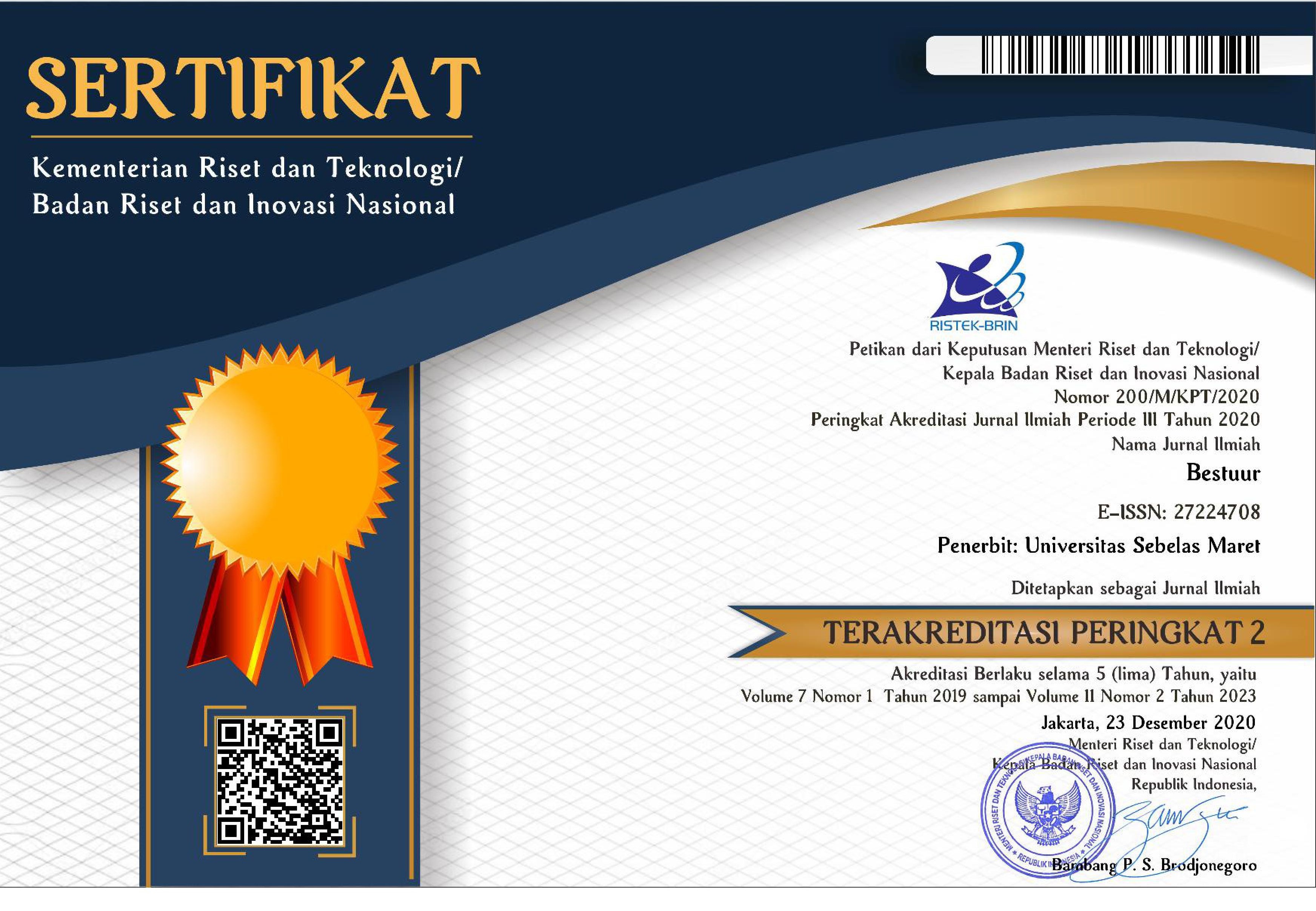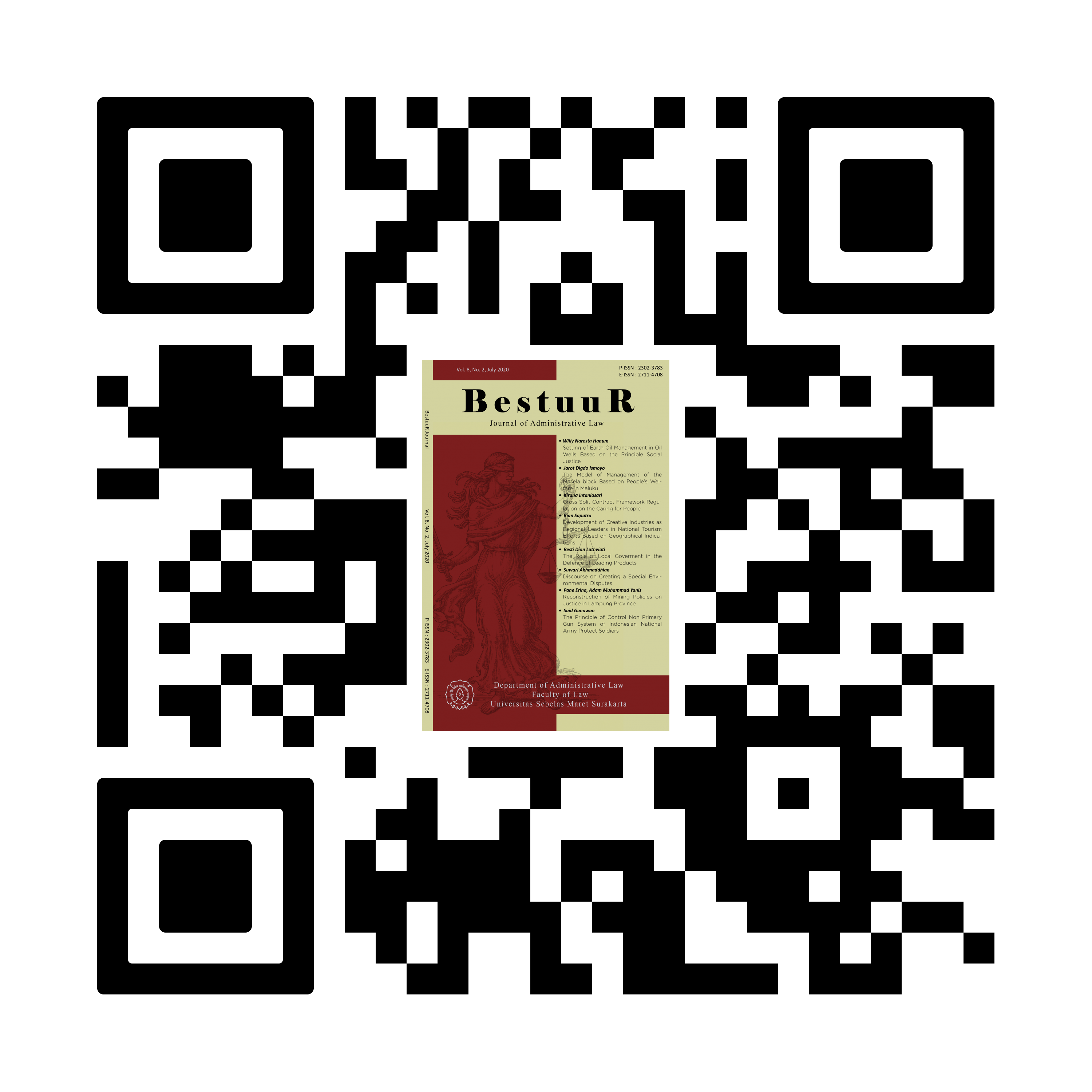‘Misclassified Partnership’ and the Impact of Legal Loophole on Workers
Abstract
Keywords
Full Text:
PDFReferences
Abdi, A. P. (2021). Kurir Shopee Express Mogok Kerja akibat Pemangkasan Upah. Tirto.id. Retrieved 9 June 2022 from https://tirto.id/kurir-shopee-express-mogok-kerja-akibat-pemangkasan-upah-gccu
Aloisi, A. (2016). Commoditized Workers. Case Study Research on Labour Law Issues Arising from a Set of 'On-Demand/Gig Economy' Platforms. Comparative Labor Law&Policy Journal, 37(3), 653-690. https://doi.org/10.2139/ssrn.2637485
Aloisi, A. (2022). Platform work in Europe: Lessons learned, legal developments and challenges ahead. European Labour Law Journal, 13(1), 4-29. https://doi.org/10.1177/20319525211062557
Azis, A., Handriani, A., & Basri, H. (2019). Perlindungan Hukum Hak Pekerja Pada Perjanjian Kerja Waktu Tertentu Dalam Ketenagakerjaan. Jurnal Surya Kencana Satu: Dinamika Masalah Hukum Dan Keadilan, 10(1), 59–74. https://doi.org/10.32493/jdmhkdmhk.v10i1.3175
Bergvall-Kåreborn, B., & Howcroft, D. (2014). Amazon Mechanical Turk and the commodification of labour. New Technology, Work and Employment, 29(3), 213-223. https://doi.org/10.1111/ntwe.12038
BPS, I. S. (2021). Berita Resmi Statistik: Keadaan Ketenagakerjaan Indonesia Februari 2021
Butler, S. (2017). Deliveroo accused of 'creating vocabulary' to avoid calling couriers employees. The Guardian. Retrieved 13 February 2022 from https://www.theguardian.com/business/2017/apr/05/deliveroo-couriers-employees-managers
De Stefano, V. (2016). The rise of the just-in-time workforce: On-demand work, crowdwork, and labor protection in the gig-economy. Comparative Labor Law & Policy Journal, 37(3), 471-504. https://doi.org/10.2139/ssrn.2682602
Delhommer, S. (2020). Effect of State and Local Sexual Orientation Anti-Discrimination Laws on Labor Market Differentials. Available at SSRN 3625193. https://doi.org/10.2139/ssrn.3625193
Dubal, V. B. (2017). Wage slave or Entrepreneur?: Contesting the dualism of legal worker identities. California Law Review, 65-123. https://ssrn.com/abstract=2796728
Dubal, V. B. (2020). Digital Piecework. Dissent. Retrieved June 14, 2022 from https://www.dissentmagazine.org/article/digital-piecework
Dubal, V. B. (2022). Economic Security & the Regulation of Gig Work in California: From AB5 to Proposition 22. European Labour Law Journal, 13(1), 51-65. https://doi.org/10.1177/20319525211063111
Duggan, J., Sherman, U., Carbery, R., & McDonnell, A. (2019). Algorithmic management and app‐work in the gig economy: A research agenda for employment relations and HRM. Human Resource Management Journal, 30(1), 114-132. https://doi.org/10.1111/1748-8583.12258
Fanggidae, V., Sagala, M. P., & Ningrum, D. R. (2018). On-Demand transport workers in Indonesia. https://www.justjobsnetwork.org/wp-content/uploads/2018/03/toward-understanding-sharing-economy.pdf
Fatmawati, D., Isbah, M. F., & Kusumaningtyas, A. P. (2019). Pekerja Muda dan Ancaman Deskilling-Skill Trapdi Sektor Transportasi Berbasis Daring. Jurnal Studi Pemuda, 8(1), 29-45. https://doi.org/10.22146/studipemudaugm.45301
Frost, J. (2016). Uber and the Gig Economy: Can the Legal World Keep up. 13 SciTech Law. 4. Retrieved 17 November 2021 from https://www.americanbar.org/groups/science_technology/publications/scitech_lawyer/2017/winter/uber_and_gig_economy_can_legal_world_keep_up.ssologout/
Goods, C., Veen, A., & Barratt, T. (2019). “Is your gig any good?” Analysing job quality in the Australian platform-based food-delivery sector. Journal of Industrial Relations, 61(4), 502-527. https://doi.org/10.1177/0022185618817069
Gramano, E. (2018). Humans as a Service. The Promise and Perils of Work in the Gig Economy. Work Organisation, Labour & Globalisation, 12(2), 99–102. https://doi.org/10.13169/workorgalaboglob.12.2.0099
Halilintarsyah, O. (2021). Ojek Online, Pekerja atau Mitra? Jurnal Persaingan Usaha, 2, 64-74. https://doi.org/10.55869/kppu.v2i.24
Harvey, G., Rhodes, C., Vachhani, S. J., & Williams, K. (2016). Neo-villeiny and the service sector: the case of hyper flexible and precarious work in fitness centres. Work, Employment and Society, 31(1), 19-35. https://doi.org/10.1177/0950017016638023
ILAW. (2021). Taken for a Ride: Litigating the Digital Platform Model. https://www.ilawnetwork.com/issue-briefs-reports/taken-for-a-ride-litigating-the-digital-platform-model/
Irawan, M. Z., Belgiawan, P. F., Joewono, T. B., Bastarianto, F. F., Rizki, M., & Ilahi, A. (2022). Exploring Activity-Travel Behavior Changes during the Beginning of COVID-19 Pandemic in Indonesia. Transportation, 49(2), 529–553. https://doi.org/10.1007/s11116-021-10185-5
Izzati, N. R. (2021). Eksistensi Yuridis dan Empiris Hubungan Kerja Non-Standar dalam Hukum Ketenagakerjaan Indonesia. Masalah-Masalah Hukum, 50(3), 290-303. https://doi.org/10.14710/mmh.50.3.2021.290-303
Izzati, N. R., Putri, T. E., Darmawan, P., Asmara, A. A., Kusumaningtyas, A. P., & Simanjuntak, R. T. (2021). Fairwork Indonesia Ratings 2021: Labour Standards in the Gig Economy (Fairwork Ratings, Issue. https://fair.work/wp-content/uploads/sites/131/2021/12/211209_Fairwork_Report_Indonesia-2021.pdf
Kaine, S., & Josserand, E. (2019). The organisation and experience of work in the gig economy. Journal of Industrial Relations, 61(4), 479-501. https://doi.org/10.1177/0022185619865480
Kumparan. (2022). Banyak Startup PHK Karyawan, Ini Kata Menaker. Kumparan Bisnis. Retrieved June 14, 2022 from https://kumparan.com/kumparanbisnis/banyak-startup-phk-karyawan-ini-kata-menaker-1yE3Tahk1pd/full?utm_medium=post&utm_source=Twitter&utm_campaign=int
Kusuma, B. A., Karjoko, L., Ayu, A. K. J. I. G., Handayani, K. R., & Hayat, M. J. (2021). Establishment of Indonesian Maritime Power: Regulation of Transnational Organized Crime on Illegal, Unreported, and Unregulated (IIU) Fishing. https://www.ijcjs.com/IJCJS_abdul_kadir_Indoensia_22M-04-014_Ready_to_print_(251-266).pdf
Leighton, P. (2016). Professional self-employment, new power and the sharing economy: Some cautionary tales from Uber. Journal of Management & Organization, 22(6), 859-874. https://doi.org/10.1017/jmo.2016.30
Novianto, A. (2021). The partnership trap in the Indonesian gig economy. Developing Economics. Retrieved 18 December 2021 from https://developingeconomics.org/2021/06/20/the-partnership-trap-in-the-indonesian-gig-economy/
Novianto, A., Wulansari, A. D., & Hernawan, A. (2021). Riset: empat alasan kemitraan Gojek, Grab, hingga Maxim merugikan para Ojol. The Conversation. Retrieved June 14, 2022 from https://theconversation.com/riset-empat-alasan-kemitraan-gojek-grab-hingga-maxim-merugikan-para-ojol-159832
Pradella, L. (2014). Globalization and the Critique of Political Economy: New Insights from Marxʼs Writings. Routledge. https://doi.org/10.4324/9781315813165
Pulignano, V. (2019). Work in deregulated labour markets: a research agenda for precariousness. ETUI Research Paper-Working Paper. https://doi.org/10.2139/ssrn.3350980
Rachmawati, R., Safitri, Zakia, L., Lupita, A., & Ruyter, A. D. (2021). Urban gig workers in Indonesia during COVID-19- The experience of online ‘ojek’ drivers. Work Organisation, Labour & Globalisation Vol. 15(No. 1), 31-45. https://doi.org/10.13169/workorgalaboglob.15.1.0031
Rubery, J., Grimshaw, D., Keizer, A., & Johnson, M. (2018). Challenges and contradictions in the ‘normalising’of precarious work. Work, Employment and Society, 32(3), 509-527. https://doi.org/10.1177/0950017017751790
Shalihah, F. (2017). Perjanjian Kerja Waktu Tertentu (Pkwt) Dalam Hubungan Kerja Menurut Hukum Ketenagakerjaan Indonesia Dalam Perspektif Ham. UIR Law Review, 1(2), 149–160. https://doi.org/10.25299/uirlrev.2017.1.02.955
Sprague, R. (2015). Worker (Mis)Classification in the Sharing Economy: Trying to Fit Square Pegs into Round Holes. ABA Journal of Labor & Employment Law, 31(1), 53-76. https://doi.org/10.2139/ssrn.2606600
Stewart, A., & Stanford, J. (2017). Regulating Work in the Gig Economy: What Are the Options? The Economic and Labour Relations Review, 28(3), 420–437. https://doi.org/10.1177/1035304617722461
Tekeli-Yesil, S., & Kiran, S. (2020). A Neglected Issue in Hospital Emergency and Disaster Planning: Non-Standard Employment in Hospitals. International Journal of Disaster Risk Reduction, 51(December 2020), 101823. https://doi.org/10.1016/j.ijdrr.2020.101823
Todolí-Signes, A. (2017). The ‘gig economy’: employee, self-employed or the need for a special employment regulation? Transfer: European Review of Labour and Research, 23(2), 193-205. https://doi.org/10.1177/1024258917701381
Woods, P. (2005). Successful Writing for Qualitative Researchers. Routledge. https://doi.org/10.4324/9780203983201
Wu, Q., Zhang, H., Li, Z., & Liu, K. (2019). Labor control in the gig economy: Evidence from Uber in China. Journal of Industrial Relations, 61(4), 574-596. https://doi.org/10.1177/0022185619854472
Ződi, Z., & Török, B. (2021). Constitutional Values in the Gig-Economy? Why Labor Law Fails at Platform Work, and What Can We Do about It? Societies, 11(3). https://doi.org/10.3390/soc11030086
DOI: https://doi.org/10.20961/bestuur.v10i1.62066
Refbacks
- There are currently no refbacks.
Copyright (c) 2022 Nabiyla Risfa Izzati; Mas Muhammad Gibran Sesunan

This work is licensed under a Creative Commons Attribution 4.0 International License.
|











_CROSREF.jpg)




